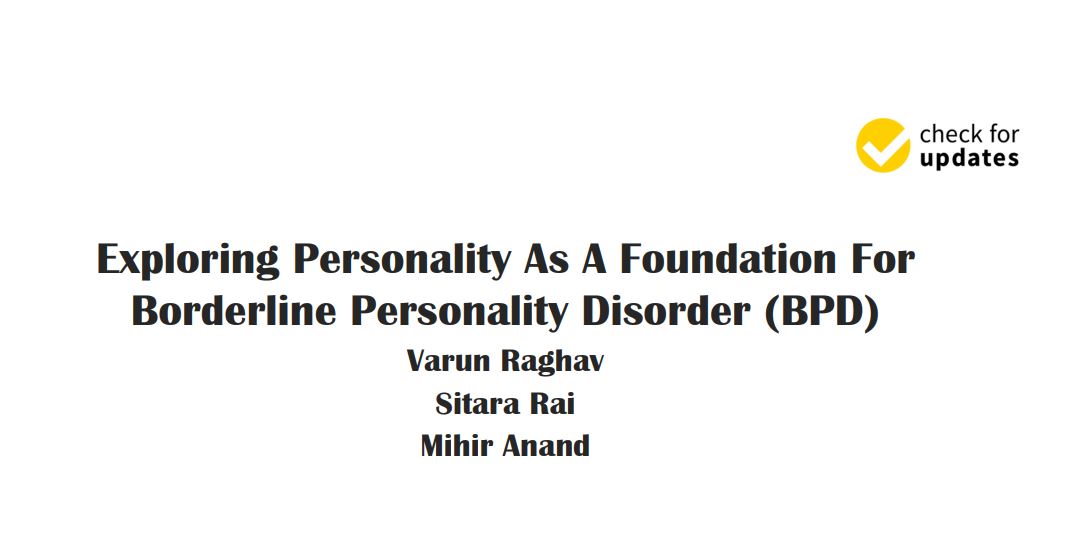Exploring Personality As A Foundation For Borderline Personality Disorder (BPD)
Keywords:
Behavior, BPD, PersonalityAbstract
Personality is a term that comes up very often. The vast majority of individuals believe that they are aware of its significance. As an example, many of us find that the following three sentences are simple to comprehend and express in a condensed manner a significant amount of detail about a person: She has a vivacious and outgoing attitude. It's likely that she has a great sense of humor, that she likes having a good time, and that she thrives when she's with other people. Because of his irritable demeanor, this guy probably comes off as lifeless and uninteresting, and he avoids spending time in the company of other people. This dude presumably has a short patience span and turns people off as a result. On the other hand, it is impossible to sum up a person's whole personality in a single or even two words, much alone a full phrase. In addition to this, we investigate the entire significance of the term "personality." In this article, we will discuss the traits that define a healthy personality, as well as the traits that characterize an unhealthy personality. The findings of this research set the framework for a better understanding of borderline personality disorder (BPD) as well as all the other personality disorders. After all, there is one element that unites all of these conditions, and that is personality.




